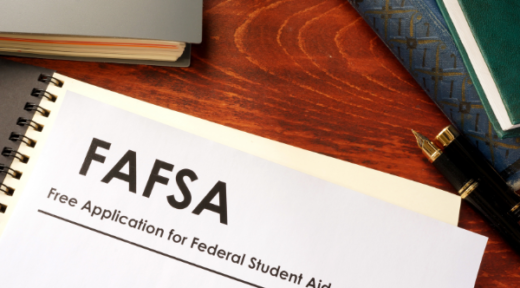Many financial aid offices of colleges and universities are literally behind the times when it comes to determining financial aid packages. During Covid-19, this timing can hurt you financially if the pandemic affected your family income in 2020.
Let’s discuss strategies of how to appeal a financial aid offer to negotiate additional need-based aid for your college-bound student.
First, a quick review:
What is a financial aid package?
A financial aid package typically includes two main pieces of information:
- The Cost of Attendance (COA), which is the estimated annual total of tuition and fees, room and board, books and supplies, local transportation and personal expenses, possibly a personal computer, and other school-specific expenses.
- The financial aid offer, also called a gift, award, source, or similar, is the monetary assistance offered by the school to the individual student. It’s often a combination of grants and scholarships that don’t have to be repaid, and loans, which do have to be repaid, usually with interest.
The offer may also detail the Expected Family Contribution (EFC), which is the amount of money the family is expected to be able to contribute to the student’s college expenses. EFC is calculated by each school according to a formula based on the student’s Free Application for Federal Student Aid (FASFA (®). The difference between the COA and the EFC (COA – EFC) is the maximum amount of aid that the student is eligible to receive from the school, although the actual award offered may be less.
It’s complicated, all the more because both the EFC and college’s aid package look at the tax return from two years ago. That means if your kid is heading to college in 2021, their financial award is most likely based on your 2019 records, not 2020.
That timing is proving highly problematic for many. Is it for you?
2019 was a very different reality. If your current financial situation has changed significantly because either your 2020 income took a hit following the economic downturn caused by the pandemic or you’re forecasting a fallout this year, the data from 2019 is more or less irrelevant.
If that’s the case, now is the time to appeal the financial award offer.
What’s a financial aid appeal?
It’s essentially a detailed letter, along with documentation to back up your narrative. You want to demonstrate that you are unable to afford the EFC as originally calculated and that you are requesting additional need-based aid.
There is no need to squirm. You are not asking for charity. You’re simply making the best financial decision in your current situation.
By the way, you aren’t the only one. Financial aid appeals have been spiking during the pandemic.
What should you include in a financial aid appeal?
Write a detailed letter that describes the reasons for your reduced income from 2020 earnings or for your expected income loss in 2021. Then, document, document, document.
Every piece of documentation should back up your narrative.
For example,
- If you already filed your 2020 income tax return, include a copy.
- If you haven’t yet and you (or your CPA) won’t have it ready anytime soon, include copies of your 2020 W-2s and 1099s, as applicable.
- Include paystubs showing your current year-to-date earnings if those are less than your 2019 or 2020 earnings from the same period.
- If you lost your job, include the letter of termination.
- If you collected unemployment benefits in 2020, including the W-2.
- If you are currently collecting unemployment benefits, take screenshots of your weekly reports and include those.
- If you own a business and your sales are down, include monthly cash flow or income statements, along with corresponding documents from 2019 or early 2020 if they show more profitable numbers.
Hard numbers maximize your odds, so include all documentation that will bolster your appeal.
Finally, conclude your letter with a formal ask that the college recalculate your EFC based on these current numbers that justify increased need-based aid.
Feel free to use our sample financial aid appeal letter to guide you.
What other steps can you take?
After you’ve mailed your letter, follow up with a phone call a week or two later. Reiterate your child’s interest in attending the college and your willingness to support that plan. Ask about the status of your appeal. Indicate your openness to negotiate.
Be persistent and hopeful. Also, don’t forget: Lean on us. We love being a resource to help you. Give us a call to fine-tune your strategy so your child can attend the college of their choice.




